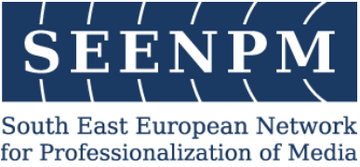
Media researchers working with member organisations of the South East European Network for Professionalization of Media analysed media reporting of a number of recent crises. The study, coordinated by Sanela Hodžić, a senior researcher at Mediacentar Sarajevo, covers the following cases and countries:
- the so-called Lake Park protests, which started in February 2016, against the building of a children's playground in the area of Lake Park in Tirana, Albania;
- the National Day of Republika Srpska (RS) in Bosnia and Herzegovina, the polarisation between Bosniaks and Serbs, and the related referendum of September 2016;
- tensions between Albanians and Serbs in Kosovo, triggered by the building of a wall in the divided city of Mitrovica at the end of 2016;
- the refugee crisis and the political crisis in Macedonia;
- the crisis in relations between Serbia and Croatia that culminated when Zagreb expressed its objections on issues related to education of Croatian minority in Serbia and subsequently blocked the opening of Chapter 26 of Serbia EU accession talks;
- the alleged coup in Montenegro in October 2016.
According to the findings, crisis situations are taken as an opportunity for political elites to consolidate their power. Mutual antagonism between ethno-national or political factions feeds into the actively promoted notion that the nation is under threat, which almost never fails to cement the support of the electorate for the ruling groups. Instead of resisting such abuse, the media often serve those particular interests. The idea of public-service journalism is under-promoted, often pushed to the margins of the media mainstream.
Tags: Access to information Freedom of expression Media freedom Ethics of journalism Albania Bosnia Herzegovina Montenegro Kosovo North Macedonia Serbia CroatiaThe content of this article can be used according to the terms of Creative Commons: Attribution-NonCommercial 4.0 International (CC BY-NC 4.0) . To do so use the the wording "this article was originally published on the Resource Centre on Media Freedom in Europe" including a direct active link to the original article page.

